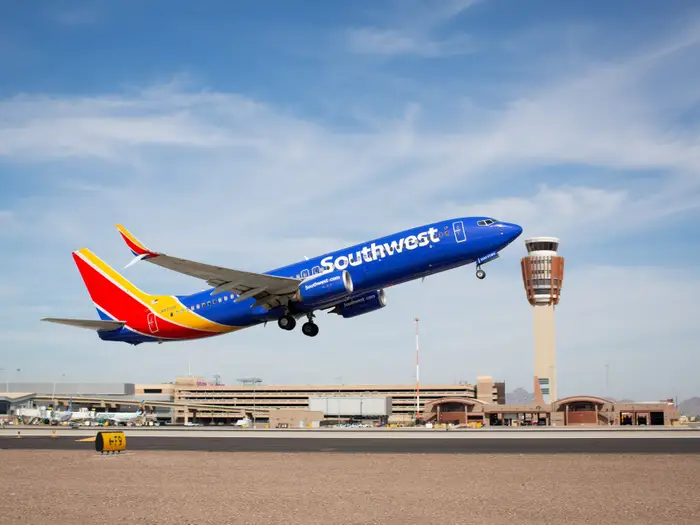In a move that has disrupted travel plans for thousands of passengers, Southwest Airlines canceled over 1000 flights across the United States this past weekend. The cancellations, which represent a significant portion of the airline’s schedule, have been attributed to a mix of operational disruptions including weather-related issues and technological glitches.
A Cascade of Cancellations
The disruptions began on Friday evening when a series of thunderstorms rolled across the central United States, impacting some of Southwest’s largest hubs, including Dallas Love Field and Chicago Midway International Airport. The adverse weather conditions, which included lightning and heavy rain, led to the initial wave of flight cancellations.
As the weekend progressed, the situation was exacerbated by a technological issue related to the airline’s crew scheduling system. This glitch made it difficult for the airline to reassign pilots and flight attendants to new flights after their original flights were canceled or delayed. The result was a cascading effect that led to further cancellations and delays, affecting flights nationwide.
Passenger Impact
The cancellations left many passengers stranded, with few alternatives available. Airports were filled with long lines at the customer service counters and overwhelmed gate agents tried to rebook passengers on alternative flights. Social media platforms were flooded with complaints from frustrated travelers, some of whom were forced to spend multiple days at the airport.
Southwest has issued a statement apologizing for the inconvenience and has promised to work diligently to accommodate affected passengers. The airline is offering refunds and rebooking without additional charges and has stated that it will honor reasonable requests for reimbursement for meals, hotel stays, and alternate transportation.
Response and Recovery
In response to the crisis, Southwest Airlines has mobilized additional staff and resources to stabilize operations and address the technical issues. The airline’s CEO, Bob Jordan, has been in direct communication with both passengers and employees, outlining the steps being taken to mitigate the impact and prevent future occurrences.
“We are doing everything in our power to get back on track and ensure that we maintain the level of reliability and customer service that our passengers expect from Southwest,” Jordan stated in a recent press release.
Broader Industry Challenges
This weekend’s events at Southwest Airlines are reflective of broader challenges within the airline industry. Many carriers are still grappling with the impacts of the COVID-19 pandemic, which has led to staffing shortages and increased operational complexities. The reliance on outdated technology in some areas also poses significant challenges, as seen with Southwest’s crew scheduling system.
Looking Forward
As Southwest Airlines works to recover from this weekend’s disruptions, the incident serves as a reminder of the fragile nature of airline operations and the interconnected systems that support them. For passengers, the situation underscores the importance of having a backup plan and preparing for potential disruptions, especially during peak travel periods.
Southwest Airlines has committed to reviewing its operational and technological frameworks to prevent similar incidents in the future. Meanwhile, affected passengers are encouraged to stay in contact with the airline through its official channels for updates on refunds, rebooking, and compensation related to the disruptions.
As the airline industry continues to navigate post-pandemic recovery and technological upgrades, passengers and carriers alike hope for smoother skies ahead.

